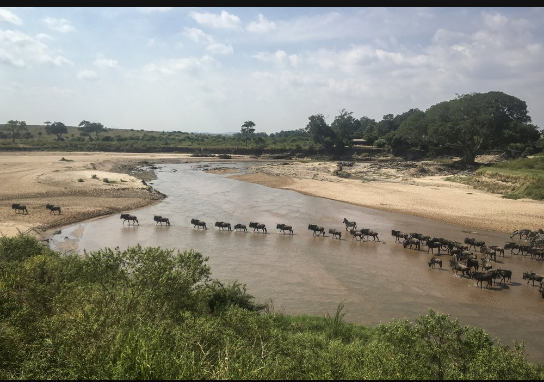
COVID-19 keeps tourists away from the annual wildebeest migration

One of nature’s most spectacular sights, East Africa’s great wildebeest migration, went largely unwatched this year as the effects of the coronavirus pandemic are felt as far as the continent’s wilderness.
Travel restrictions kept tourists away for the annual wildlife migration in Kenya’s Maasai Mara National Reserve and only a handful of guides and park wardens were there to watch thousands of wildebeest antelopes make their famous trek in search of new grazing pastures.
Speaking to the Associated Press(AP)Tour guide Milton Siloma who has worked in the world-famous reserve on Kenya’s southern border for 30 years and said he’s never seen it so quiet.
“We are alone,” he said. “We are supposed to have thousands and thousands of tourists around watching this phenomenon.”
Although the absence of tourists makes little difference to the giant herd of wildebeest moving between Kenya and neighboring Tanzania, it’s a serious problem for the park, the local government, and the surrounding community.
Without tourists there is no income from park entry fees says chief warden James Sindiyo
“COVID(-19) has really affected so many operations for us here in the reserve in the sense that the revenue, the funds, that the county government was collecting from Maasai Mara National Reserve has gone to zero,”
The effect for the people who live on the edge of the park and who rely on tourism is also significant.
Chief warden Sindiyo now decries of the situation saying that some hungry community members have begun to illegally hunt animals in the park for meat and there have been a number of arrests.
“They kill just because they are desperate to get meat,” Sindiyo said.
.






